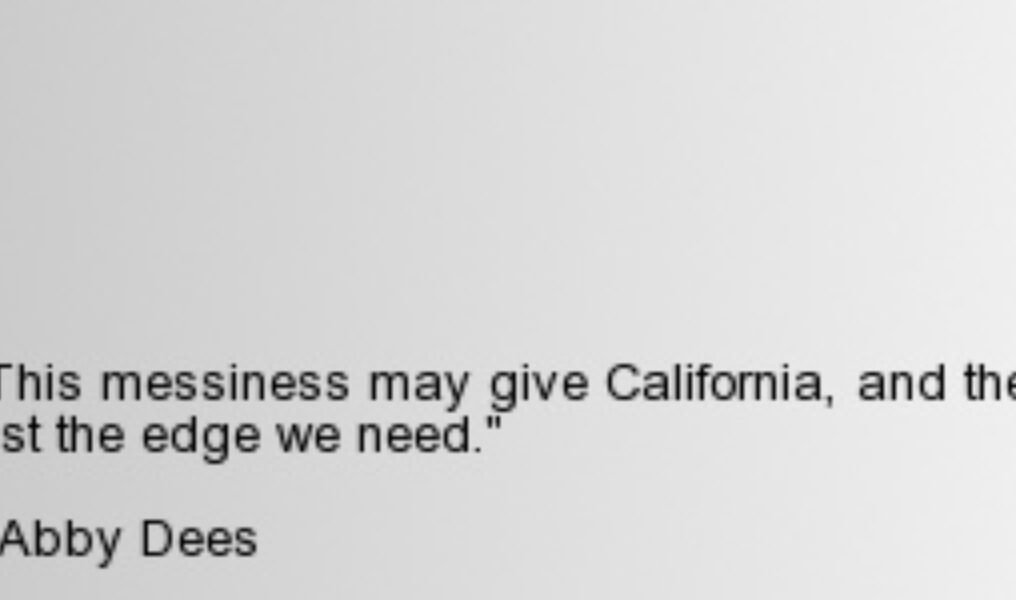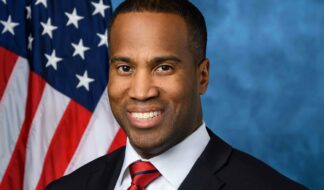By Abby Dees

Though many states have endured ugly voter initiatives to take away LGBT marriage rights, none has captured attention quite like California's Proposition 8. One reason is that California is in the unique position of having actually allowed people to marry (twice, if you count San Francisco in 2004) and then yanking marriage out from under us. There are currently thousands of same-sex married couples in California (including my partner and me), yet no more LGBT weddings are on the immediate horizon. We are in a peculiar limbo.
This bizarre division of marriage rights might be our ticket to equality if and when LGBT marriage gets to the U.S. Supreme Court, but I'll get back to that.
Another reason all eyes are on California, and not, say, Maine, which suffered a huge marriage loss at the polls, is that Prop 8 is now in the federal courts.
For those of you who are rusty on the whole states vs. feds thing, here's a refresher: When your state does something wacky, like vote away people's rights, you generally take it up in your state courts, under your state's constitution. Because the feds don't step into what they view essentially as a state squabble, the buck stops at the state Supreme Court, which is what happened to Prop 8 at first.
In a moment of astonishing wussiness, the California Supremes upheld Prop 8, tiptoeing quietly away from their inspiring ruling a year before that allowed people like me to marry. That seemed to be that for marriage in California.
Here's where things get interesting. The next day, two unlikely attorneys – Ted Olson and David Boies, who represented Bush and Gore, respectively, in Bush v. Gore – filed suit in federal court under the U.S. Constitution on behalf of two unmarried LGBT couples.
For years, the agreed-upon strategy by national LGBT organizations was to fight everything out at the state level first before moving into the high stakes conservative federal arena. But the state-by-state approach seems lately to have failed, as LGBT rights are being steadily voted away.
The federal court move was out of the blue. The usual LGBT advocates, such as Lambda Legal, were curiously mute about the whole thing – normally my email overflows with the latest picayune dispatches from the front lines. I can only imagine the arguing and anxious phone calls behind the scenes as two private attorneys without any obvious LGBT bona fides grabbed Prop 8 and ran with it, the end goal clearly being the U.S. Supreme Court.
As a community, we don't all agree on the Supreme Court strategy. It's like playing all your chips at once. Once the Court decides on same-sex marriage, the game is over for another generation at least. This conservative Court looks like bad odds to many.
On schedule, Prop 8 has been appealed to the 9th Circuit Court of Appeals, one level below the U.S. Supreme Court. Right now we are in what law professor Nan Hunter calls "a slugfest on gay marriage," as legal technicalities rise to the level of make-it-or-break-it issues. The most recent, and perhaps silliest, is Yes on 8's challenge to the original ruling based on Judge Walker's apparent homosexuality – they claim he should have recused himself. That hearing is set for June 13 and a ruling will likely be issued by the time you read this.
The biggest issue to be decided, however, is who should have the right to represent Prop 8, which is California law now. Because the governor and attorney general have refused to defend the measure, the only ones left are the groups like Yes on 8 that put it on the ballot, and it's quite possible that they don't have legal standing to represent California's voters. The 9th Circuit has punted this one over to the California Supreme Court to answer. (Same-sex marriage does have a certain hot potato quality.)
If those Prop 8 groups don't have standing, then the case dies where it lies. Same sex marriage will be allowed again in California (good), but there will be no push to the Supreme Court. If the groups have standing, the 9th Circuit hears the case – the highest court to consider the issue. They could decide on marriage rights not only for California, but for 10 other states and territories.
Whatever happens at the 9th Circuit, the case will almost certainly be appealed to the Supreme Court. Our chances there weigh heavily on whether the case stays specific to California or becomes a larger question about same-sex marriage generally. Because California did have real, honest-to-God same-sex marriages, the implications of denying people a right that they once held in their hands are especially profound. Furthermore, all those existing same-sex marriages point out the folly of Prop 8 daily. The law doesn't like lots of mismatched rights among otherwise similar people. This messiness may give California, and the rest of the country, just the edge we need.










